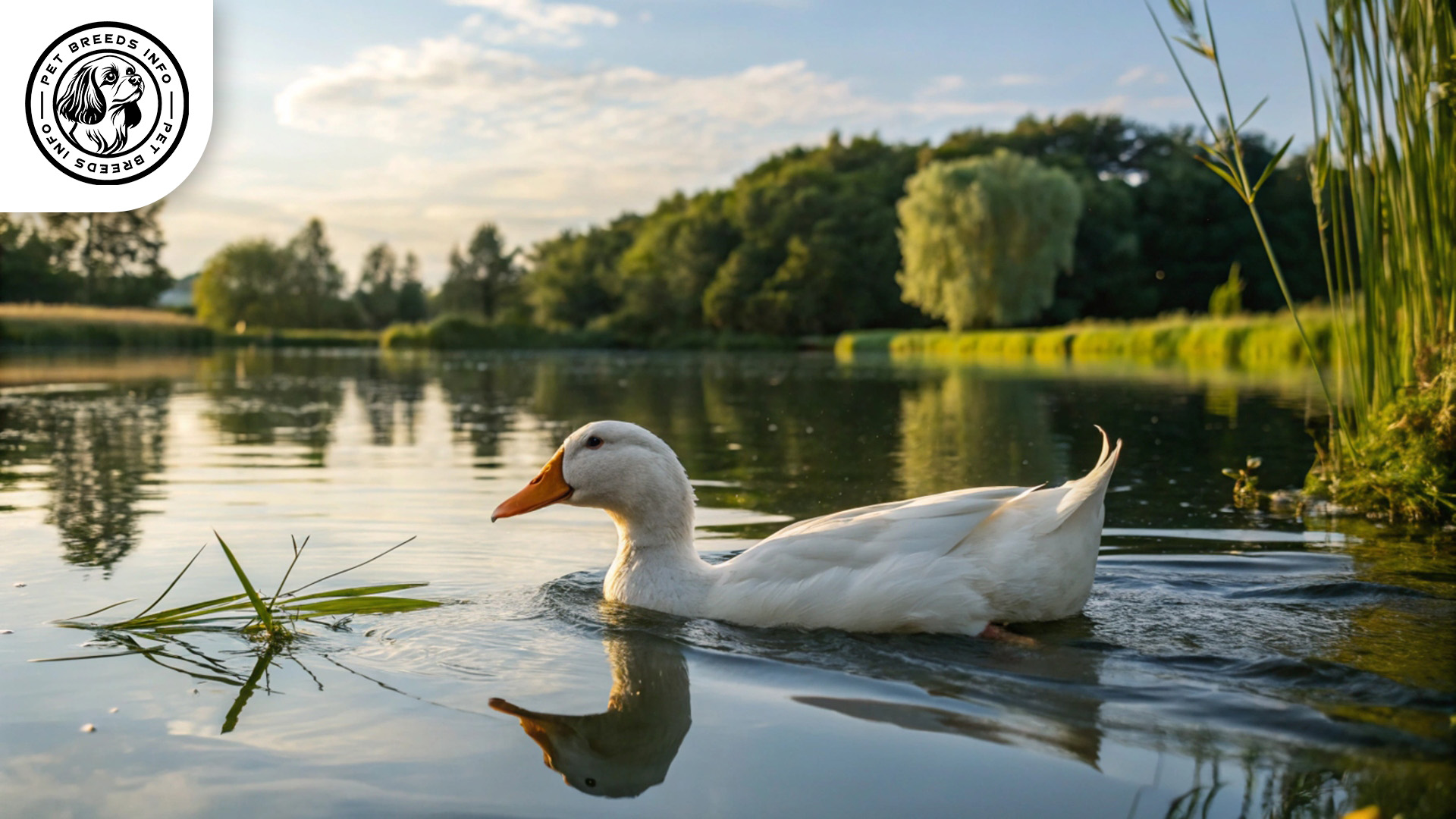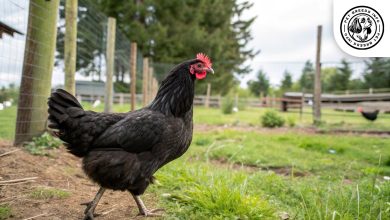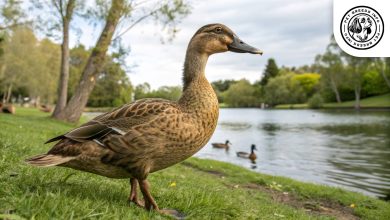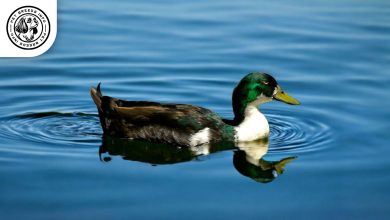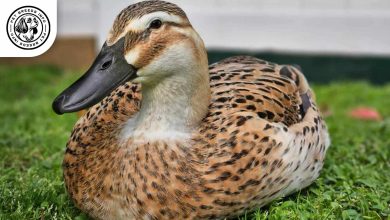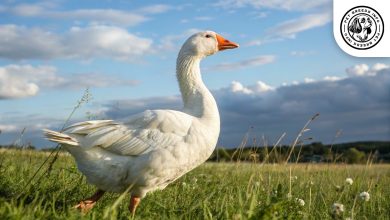Aylesbury Duck breed: Personality, Lifespan, Food & Care
General Introduction of the Breed
The Aylesbury Duck is a domestic duck breed known for its distinctive white plumage and excellent meat quality. It originates from Aylesbury, England, and has been selectively bred for its size and tender meat since the 18th century. The breed gained popularity due to its rapid growth and high-quality feathers, making it a prized bird among farmers and poultry enthusiasts.
Table of Contents
| Common Name | Aylesbury Duck |
| Scientific Name | Anas platyrhynchos domesticus |
| Origin | Aylesbury, England |
| Size | Large (Males: 4.5 to 5.5 kg, Females: 3.6 to 4.5 kg) |
| Lifespan | 5 to 10 years |
| Colors | White with pink bill |
| Talking Ability | Low |
| Noise Level | Moderate |
| Social Behavior | Friendly, calm, sociable, and gets along with other animals |
Physical Characteristics
Aylesbury Ducks are large, heavy-bodied ducks with an elongated and horizontal body structure. Males, or drakes, typically weigh between 4.5 to 5.5 kg, while females weigh around 3.6 to 4.5 kg. They have pure white, soft feathers and a distinctively pink bill, which differentiates them from other white duck breeds like the Pekin duck. Their eyes are dark and round, and their legs are short with orange-colored feet. The breed is known for its smooth, well-developed chest and sturdy frame.
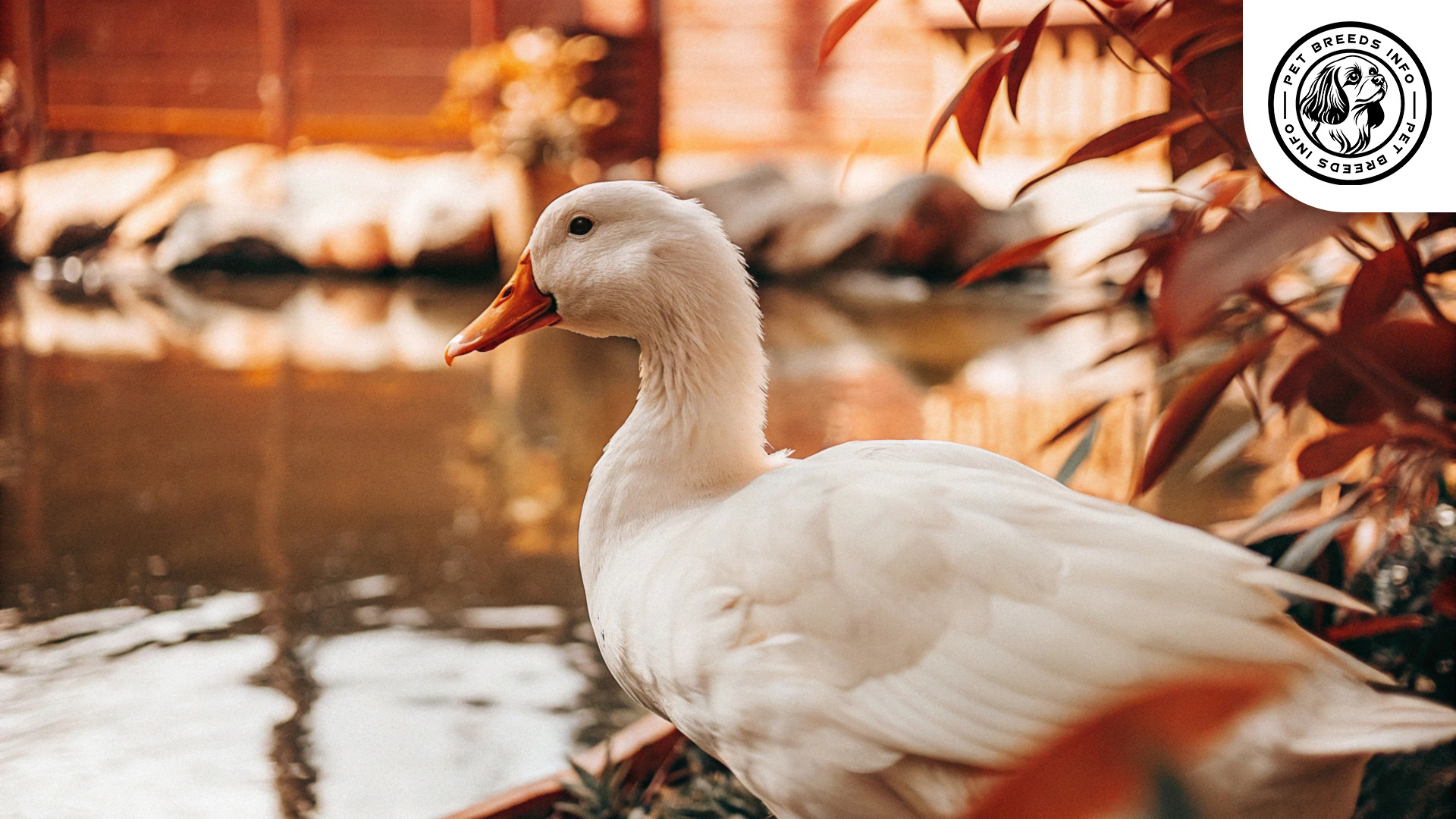
Personality and Temperament
Aylesbury Ducks are generally calm and friendly birds, making them ideal for farms or backyard flocks. They are intelligent and can learn their routine quickly, often responding well to feeding schedules. While they are not as energetic as some other duck breeds, they enjoy waddling around open spaces and foraging for food. They tend to form strong bonds with their caregivers and can coexist peacefully with other ducks and poultry. Their gentle nature makes them a suitable choice for families and small farms.
Care and Maintenance Requirements
These ducks thrive best in environments with access to both land and water. A spacious outdoor area with a pond or water source is essential for their well-being. While they are relatively low-maintenance birds, they do require proper protection from predators and harsh weather conditions. Aylesbury Ducks have minimal grooming needs, as they maintain their feathers through natural preening. Owners should provide clean bedding, regular water changes, and adequate shelter to keep them healthy and comfortable.
Read More: Australorp Chicken
Diet and Nutrition
Aylesbury Ducks require a balanced diet consisting of high-quality poultry feed supplemented with grains, vegetables, and natural foraging. They benefit from a diet rich in protein, especially during growth stages. Foods like duck pellets, corn, peas, and leafy greens are excellent dietary additions. It is crucial to avoid feeding them processed foods, excessive bread, or salty snacks, as these can lead to health issues. Fresh water should always be available to support digestion and overall health.
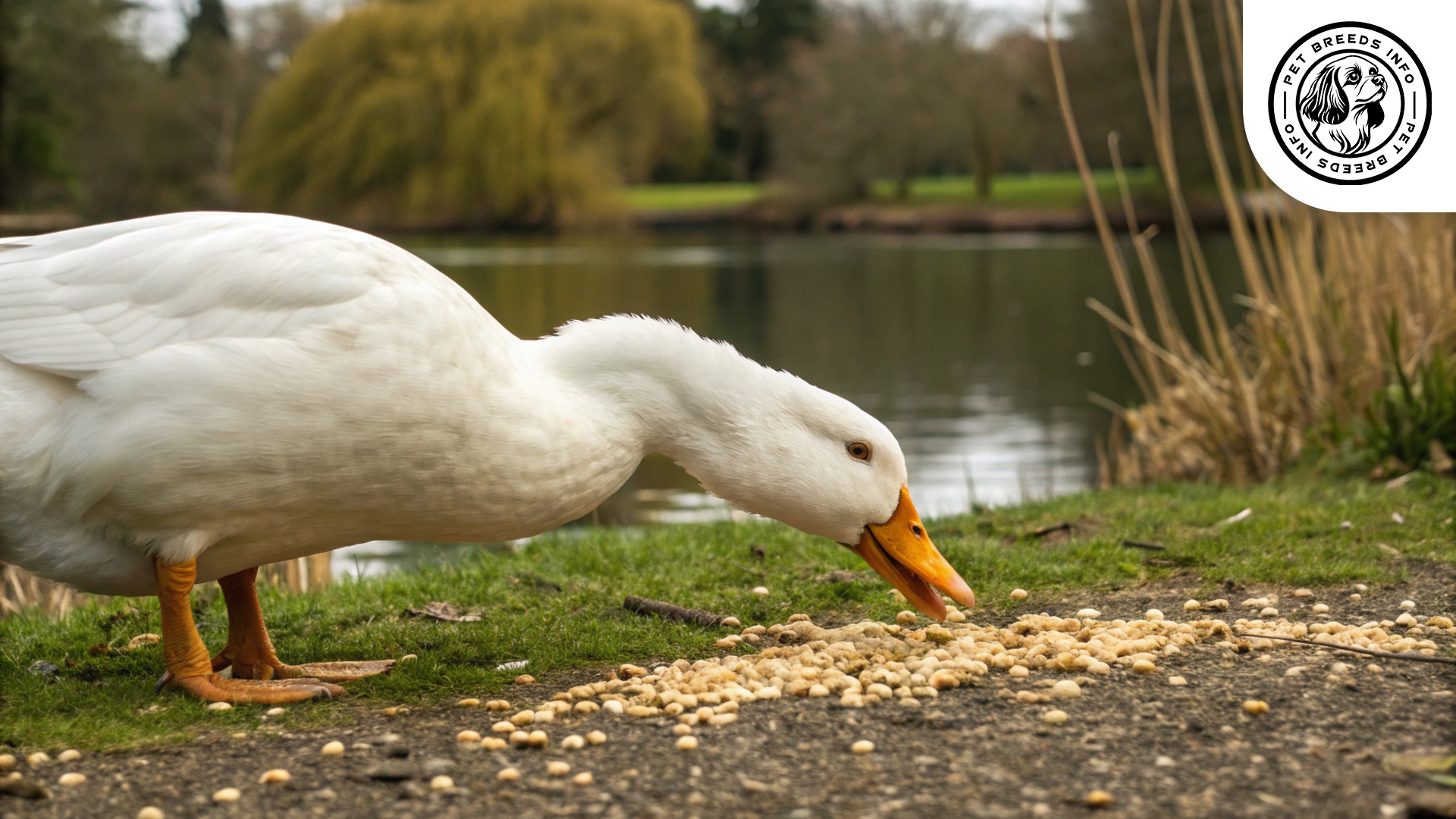
Health and Common Medical Issues
The Aylesbury Duck is generally a hardy breed but may be prone to common poultry health issues such as respiratory infections, leg problems due to their heavy bodies, and some genetic disorders. Regular vet checkups, vaccinations, and parasite control are recommended for maintaining optimal health. These ducks have an average lifespan of 5 to 10 years with proper care. Providing clean water, a balanced diet, and a safe living environment can help prevent many health concerns.
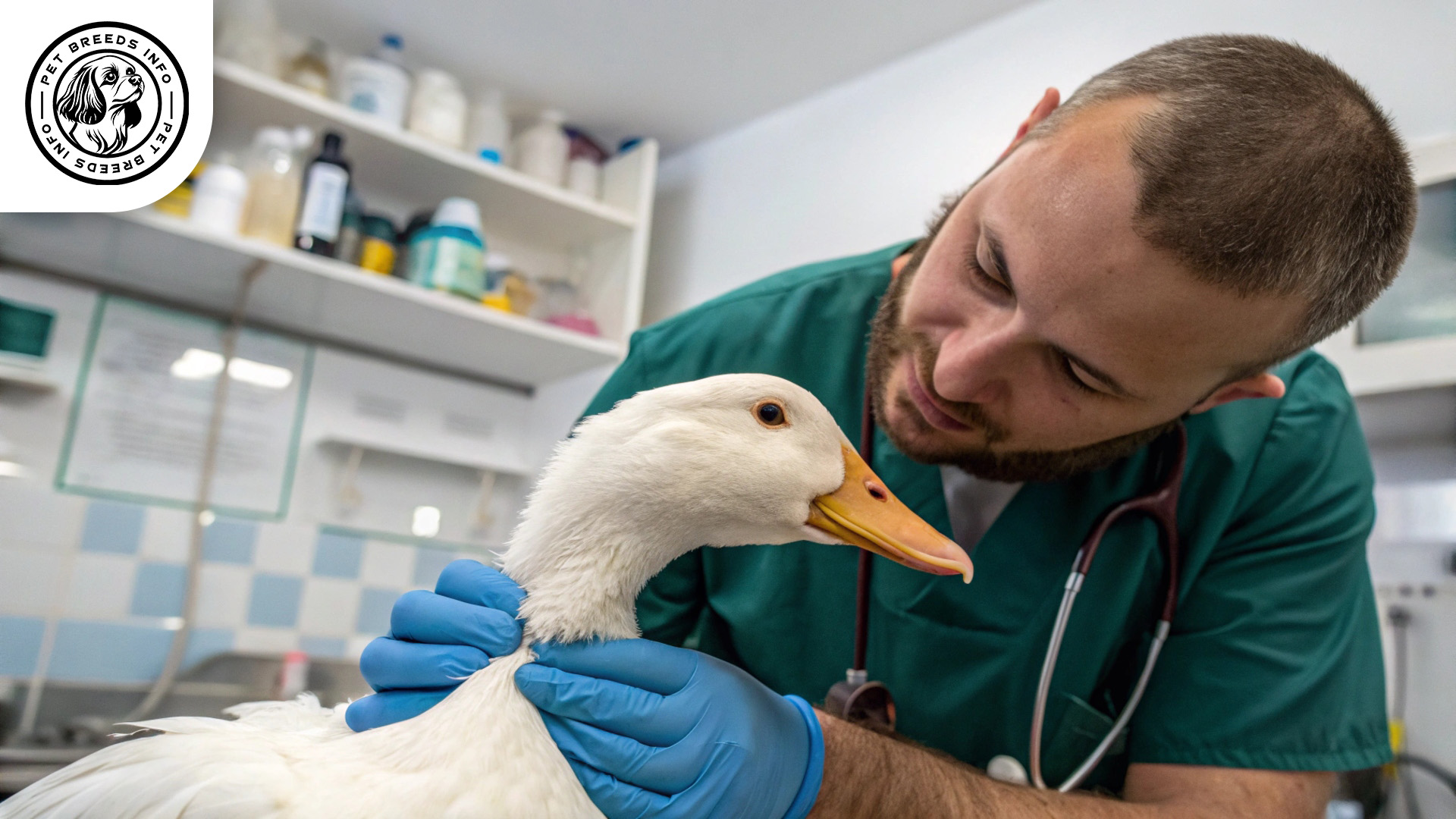
Training and Behavior Management
Although ducks are not traditionally trained like dogs or cats, Aylesbury Ducks can learn simple routines such as responding to feeding times and recognizing their owners. Positive reinforcement, such as offering treats, can be used to encourage desired behaviors. Early socialization helps in making them comfortable around humans and other animals. Since they have a calm demeanor, they rarely exhibit aggressive behaviors and can be easily managed with consistent care.
Read More: Andalusian Chicken
Interaction with Other Animals and Humans
Aylesbury Ducks are sociable birds that do well in groups. They enjoy the company of other ducks and can get along with chickens, geese, and other farm animals if introduced properly. They are gentle with children and can be a great addition to family farms. However, they should be supervised around small pets, as their size and movements can sometimes startle other animals. Due to their friendly nature, they are ideal for hobby farmers and poultry enthusiasts.
Price and Availability
The cost of an Aylesbury Duck varies based on the breeder, location, and availability. On average, ducklings can range from $10 to $30 each, while fully grown ducks may cost more. It is essential to source ducks from reputable breeders or hatcheries to ensure their health and genetic quality. Adoption through farm sanctuaries or poultry rescues can also be a great way to acquire these birds ethically.
Conclusion and Final Thoughts
The Aylesbury Duck is an excellent choice for those looking for a calm, friendly, and manageable poultry breed. With proper care, space, and nutrition, these ducks can thrive and become a valuable part of any farm or homestead. They are best suited for owners who can provide ample outdoor space and a water source for their well-being. Potential owners should consider their relatively large size and specific dietary needs before adopting this breed. Overall, the Aylesbury Duck is a wonderful choice for both small-scale farmers and poultry enthusiasts.
Read More: Appleyard Duck
FAQ
What is the origin of the Aylesbury Duck?
The Aylesbury Duck originates from Aylesbury, England, and was bred for its large size and tender meat.
How large do Aylesbury Ducks get?
Males weigh between 4.5 to 5.5 kg, while females range from 3.6 to 4.5 kg, making them a large breed.
Are Aylesbury Ducks good for family farms?
Yes, Aylesbury Ducks are calm, friendly, and ideal for family farms, getting along with children and other animals.
What should Aylesbury Ducks eat?
They need a balanced diet of high-quality poultry feed, grains, vegetables, and natural foraging with plenty of fresh water.
What are common health issues with Aylesbury Ducks?
Common issues include respiratory infections, leg problems due to their size, and occasional genetic disorders.
